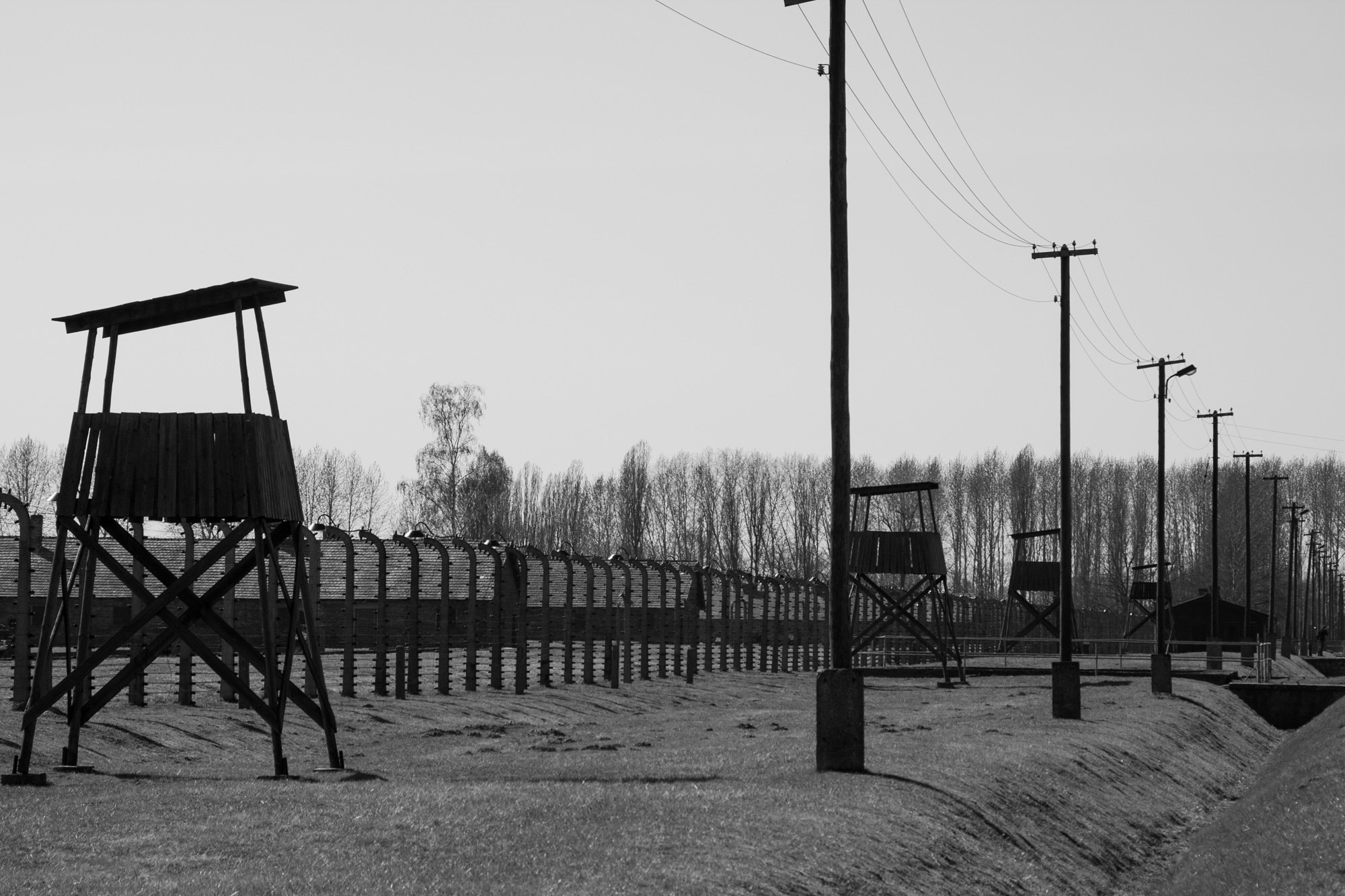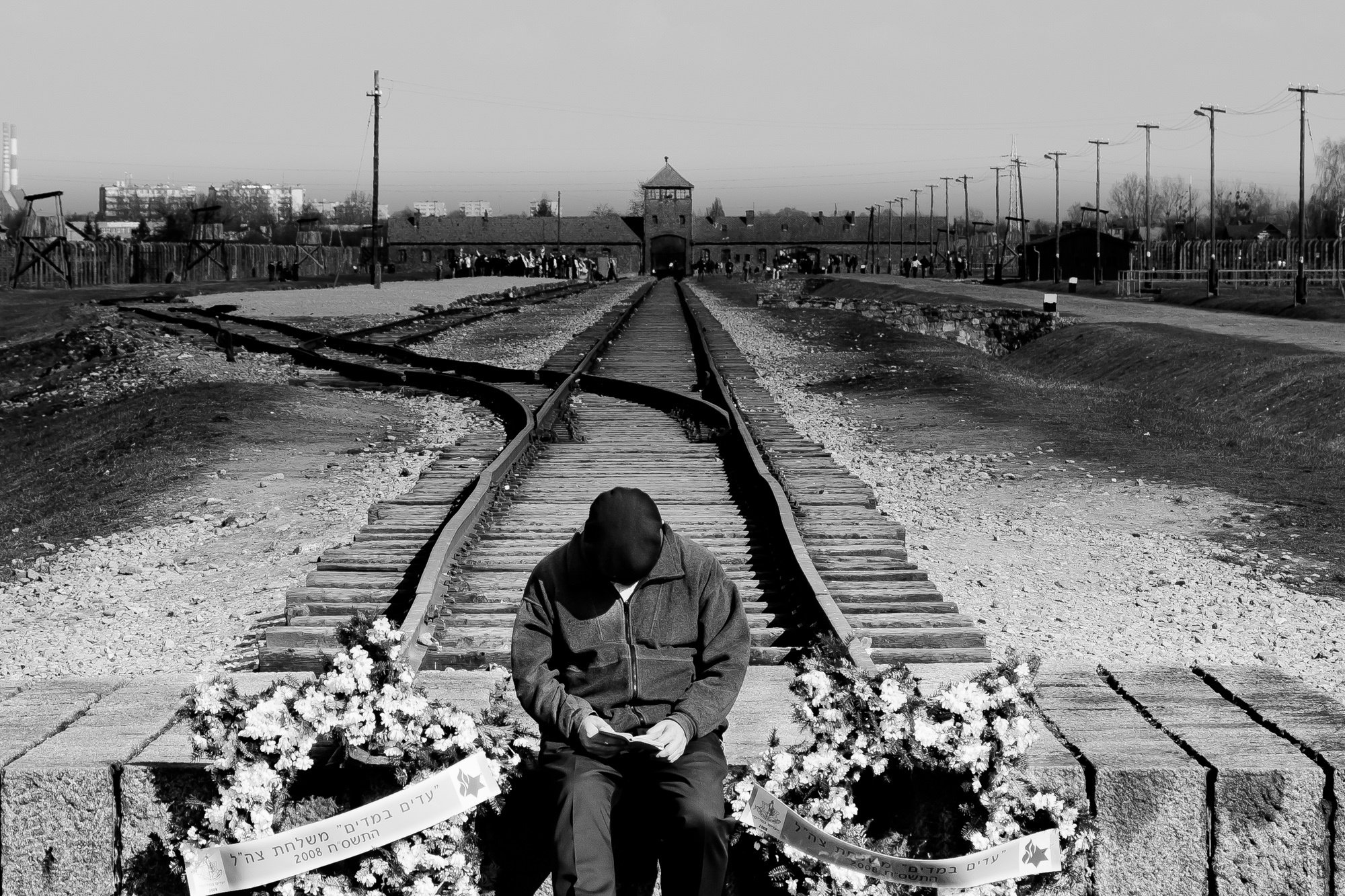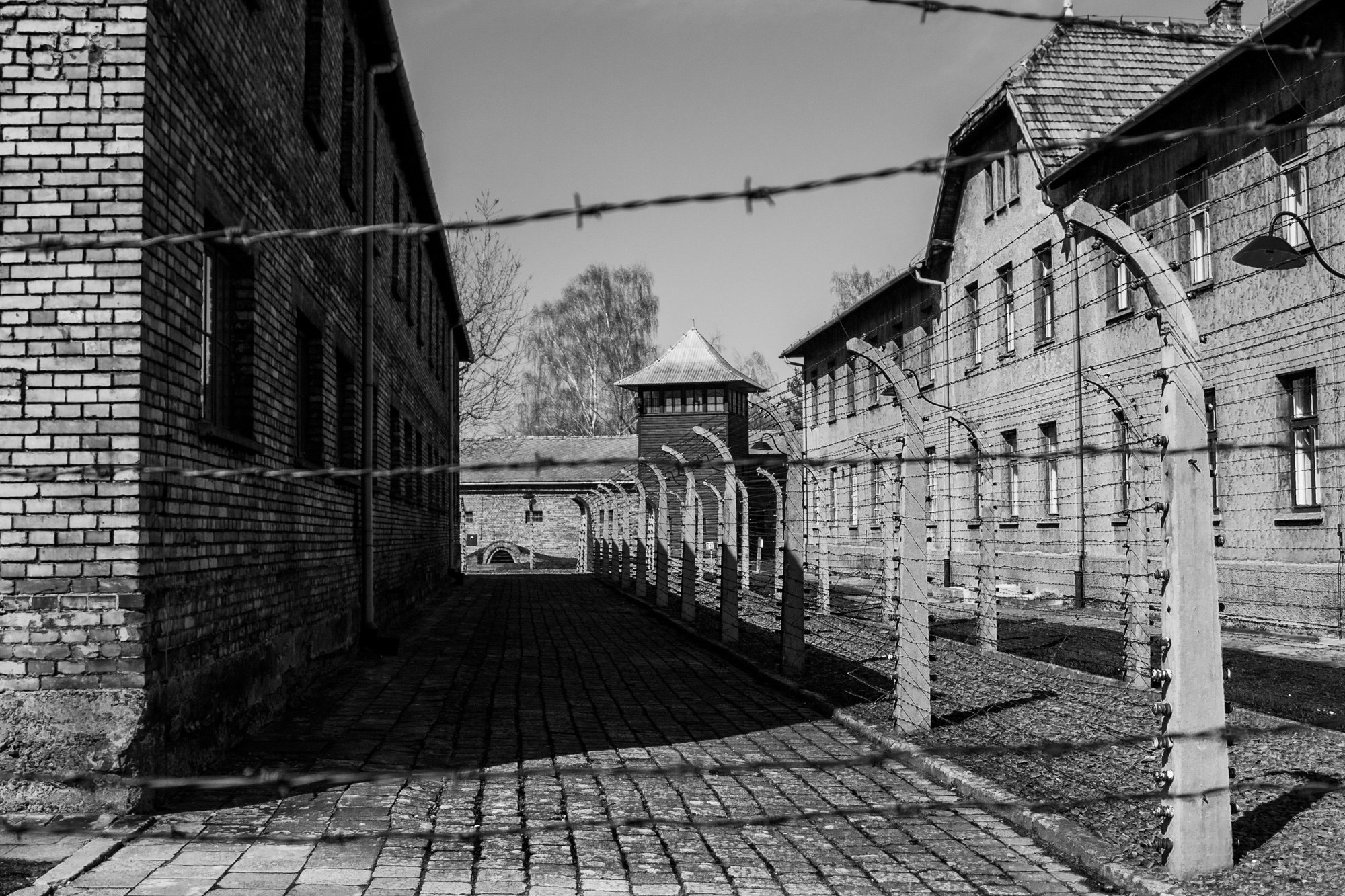THE LINE’S END
BY PAUL ROWSON
There's a rumour, an urban legend, that says you cannot hear birds singing in the skies above Auschwitz, but I can personally confirm that this isn't true -- in spite of the very public displays of sorrow and mourning from several visitors, on that particular March morning of 2008, the atmosphere was surprisingly very peaceful and birds could be heard singing clearly in the trees nearby, oblivious to the history of this place.
I was accompanying a friend on this trip. Despite me growing up in an area with a significant Jewish population, I was going for the shared experience, rather than any personal pilgrimage or connection to the holocaust. However, the visit has left me with a sober awareness of some of the darkest aspects of humanity, and the scale of the operation that made it happen.
The area around Birkenau is vast – think of a modest English housing estate and you begin to get the picture; until you visit it’s impossible to convey just how big this place is. The gas chamber, (above) part demolished by the Nazis when they realised the Red Army was approaching -- is at the far end of the camp and the end of the railway, and that's when I saw this man (below), alone, reading with his head bowed.
It was the perfect moment; the railway, the main building, the seated man -- everything lined up and I had the perfect picture. Maybe not technically, but this demonstrates how technically perfect isn’t always the priority. It was that simple, it wasn't planned, it was instant -- and afterward, with my friend I proceeded to walk back, directly along the entire length of the disused railway track, pondering what it meant for us to be in this place at this particular time. This felt important – to slowly walk the entire length of this particular railway at this particular time held a significance that I still cannot put my finger on.
One thing I’ve long pondered is the architecture of the place -- like, you can look at stock photos of barbed wire and sentry points, and see the obvious evil that unfolded here -- but seeing it for real, well it had a different impact. When photographing streets and buildings I'm often drawn towards design, angles and geometry, and rarely think about the purpose of a building. What struck me about the barracks buildings is just how ‘ordinary’ and nondescript they looked. The same was true at the nearby Auschwitz Labour Camp -- the one with the sign that says "Arbeit Macht Frei" (Work Sets you Free) above the gate. The buildings reminded me of a housing estate rather than the base for one of the most sinister operations in human history. If you remove the sentry boxes, barbed wire and danger signs, they could have been anywhere; they were just buildings, built by people.
As a photographer, when looking at my images, it’s almost like I wanted to add ‘extra sinister’ into my editing, just because the context may not have been immediately obvious – that, without the knowledge, the pictures didn’t speak for themselves. And I guess the same could be said for a railway line – take away the context, and for the uneducated, it’s just another railway siding. The term ‘story’ has been a very common theme on the Photography Daily podcast with the suggestion that it is sometimes overused, but often there is a story that goes way beyond the actual photograph.
So, maybe I should not have been surprised when I received an unrequested critique to "Crop out the building at the end of the railway line" from the picture above featuring the solitary man? Perhaps that’s why I don’t ask or offer critique unless it’s been requested – we all have our take on the world, we all have our own intentions when it comes to photographing and we all have different knowledge of the subject and a different level of experience. However, it remains a sad fact that many people are as oblivious as the singing birds, and painfully unaware of the story of an incredibly significant period in recent human history.
That said, however, I have a Jewish friend who thinks Auschwitz should be flattened and forgotten about in order that his culture can move on – so, maybe I’m wrong, maybe it’s time to be more like those birds, innocent to anything other than the present moment?









